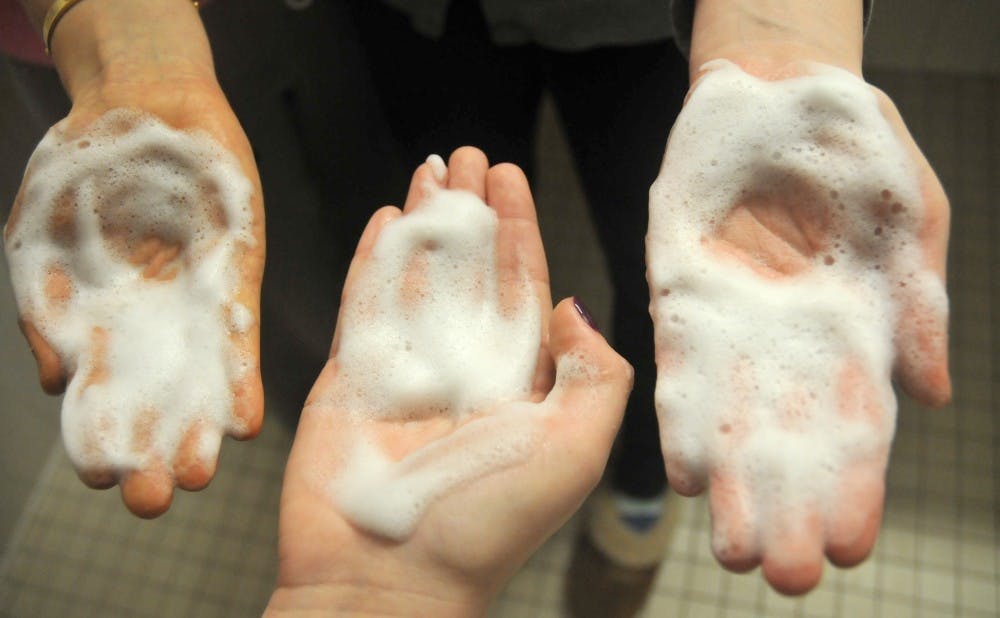A recent study p ublished in the journal indicates that pathogens are rapidly evolving to become triclosan resistant. Triclosan is a common ingredient in antibacterial soaps that is supposed to protect consumers from disease-inducing bacteria. It is possible that it is having the opposite effect. The
"To date, studies have shown that there is no added health benefit for consumers—this does not include professionals in the healthcare setting—using soaps containing antibacterial ingredients compared with using plain soap," the CDC websites states. "A link between antibacterial chemicals used in personal cleaning products and bacterial resistance has been shown in vitro studies (in a controlled environment)."
The study examined bacteria associated with fecal material at a wastewater site in New Jersey, and found that 80 percent of the bacteria were resistant to triclosan. This staggering figure is indicative of the proliferation of resistant bacteria. The widespread use of antibacterial soap has essentially created a widespread "super-pathogen."
Mohamed Noor, Earl McLean professor and chair of biology, explained that antibacterial soaps are creating a significant threat without providing tangible benefits.
“If we're getting no health benefit from our brief exposure to triclosan, all we're doing is making superbugs,” he wrote in an email Monday. “It's the same as taking precautionary antibiotics—all it does is make it more likely that when someone somewhere actually needs antibiotics, the antibiotics won't work.”
In the wake this new information regarding antibacterial soap, the Food and Drug Administration proposed a new rule last month. The agency announced that it will now require antibacterial soap manufacturers to submit data demonstrating the efficacy and safety of their products.
“If companies do not demonstrate such safety and effectiveness, these products would need to be reformulated or relabeled to remain on the market,” the FDA said in a December media release. “Today’s action is part of a larger, ongoing review of antibacterial active ingredients by the FDA to ensure these ingredients are proven to be safe and effective.”
This move, however, is not all-encompassing. The rule does not apply to hand sanitizers or wipes, two enormous parts of the personal hygiene industry, according to the FDA release. The soap companies that would be forced to remove their products from the market for lack of evidence will hardly be dealt a deathblow, as there are other antibacterial agents that could replace triclosan and cause similar resistance problems in the future.
In the face of market demand, action by companies may be unlikely unless consumers make the active decision to stop buying antibacterial soaps.
Vice President for Facilities John Noonan explained the University's approach to stocking bathrooms in an email Saturday.
"We do not use antibacterial soap," he wrote. "The soap found in bathrooms of University buildings under our responsibility is a certified green soap."
Although it may be an uphill battle, many believe antibacterial resistance is a solvable problem. David McAdams, professor of business administration and economics at the Fuqua School of Business, applied game theory to bacteria evolution in a lecture recorded August 2013. He believes it is possible to eliminate the threat of bacterial resistance.
“Although we may never be able to rid ourselves of bacterial disease, we can potentially rid ourselves of antibacterial resistance," McAdams said.
This possibility lies in the hands of individual consumers. Instead of focusing on the 99 percent of germs antibacterial soaps can kill, consumers can adjust their purchases to account for the 1 percent that are not killed.
Get The Chronicle straight to your inbox
Signup for our weekly newsletter. Cancel at any time.

